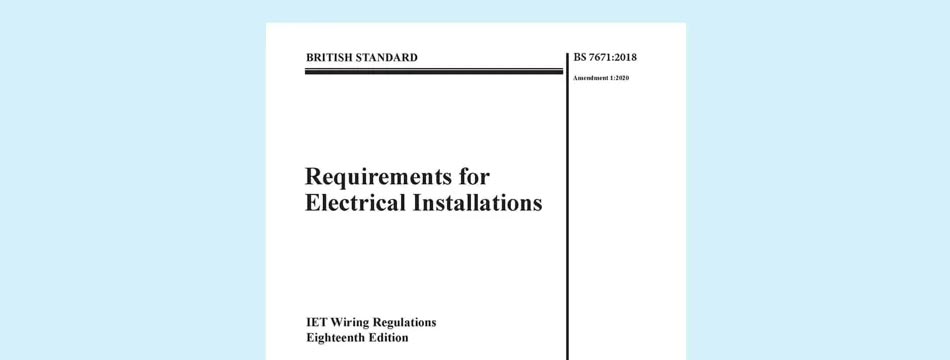
Amendment 1 to BS 7671:2018 (18th Edition IET Wiring Regulations) aims to support the rollout of electric vehicle charging infrastructure across the UK and is due to come into immediate effect.
Earlier this month UK Prime Minister Boris Johnson revealed that the ban on selling new petrol and diesel cars in the UK was to be brought forward from 2040 to 2035 in an effort to meet 2050 targets of net-zero greenhouse gases. Previously only applicable to petrol and diesel cars, this revised ban will also apply to hybrid vehicles, leaving customers with the option of purchasing electric or hydrogen cars and vans.
The ban has received tentative support from climate activists and environmental groups, who, whilst happy with the embargo, would like to see it come into effect even earlier.[1] However, concerns have been raised in regards to the practicalities of implementing the ban, particularly when it comes to the electrical infrastructure required to support such an increase in electric vehicles.[2] IET and BSI’s Amendment 1 to BS 7671:2018 (18th Edition IET Wiring Regulations) could contribute solving this problem.
Amendment 1 applies to Section 722 of the 18th Edition IET Wiring Regulations pertaining to Electric Vehicle Charging Installations. Dan Palmer, Associate Director of Committees at BSI, explains that the amendment to Section 722 is designed ‘to make the installation of electric charging points quicker, easier and less costly. It will help to make electric charging a common sight on UK streets and fuel the growth of the electric car usage. The UK is leading the electric revolution with ambitious plans to deliver cleaner air and a better environment by committing to 50% of new car sales to be ultra-low emission by 2030. The built environment and electrical infrastructure is the first step on the journey to making these green plans possible.”[3]
Similarly, Mark Coles, Head of Technical Regulations at IET, explains that “this update to the IET Wiring Regulations puts the electrical industry at the forefront of driving technological innovation to ensure the installation of practical, safe charging points that are accessible to all.”[4]
Urgency has been the impetus behind climate and environmental activism, as such Amendment 1 to BS 7671:2018 is to come into effect immediately. It has been released as a free-to-view, stand-alone document (available here) in an effort to ensure that it reaches the industry quicker.
With sales of electric cars tripling from 1334 in January 2019 to 4054 in January 2020, according to figures released by the Society of Motor Manufacturers and Traders (SMMT),[5] and pressure to reach environmental targets mounting, the new amendment to Section 722 is timely.
For further information regarding EVSE and 18th Edition training courses, please call on 01642 987 978, or email info@tester.co.uk.
Please browse our range of EVSE equipment. For further information regarding any of these products, please contact our sales team via email, info@tester.co.uk, or telephone, 01642 931 329.
[1] Petrol and diesel car sales ban brought forward to 2035, last accessed 06 February 2020 <https://www.bbc.co.uk/news/science-environment-48596775>
[2] Car industry: PM has ‘moved goalposts’ over petrol and diesel ban, last accessed 06 February 2020 <https://www.theguardian.com/business/2020/feb/04/car-industry-petrol-diesel-ban-uk-electric-vehicles>
[3] IET & BSI publish Amendment 1 to BS 7671:2018, last accessed 06 February 2020 < https://professional-electrician.com/news/iet-bsi-publish-amendment-1-to-bs-76712018/>
[4] IET & BSI publish Amendment 1 to BS 7671:2018
[5] Electric car queries soar over UK plan to ban polluting vehicles, last accessed 06 February 2020 <https://www.ft.com/content/e694530e-480d-11ea-aeb3-955839e06441>


